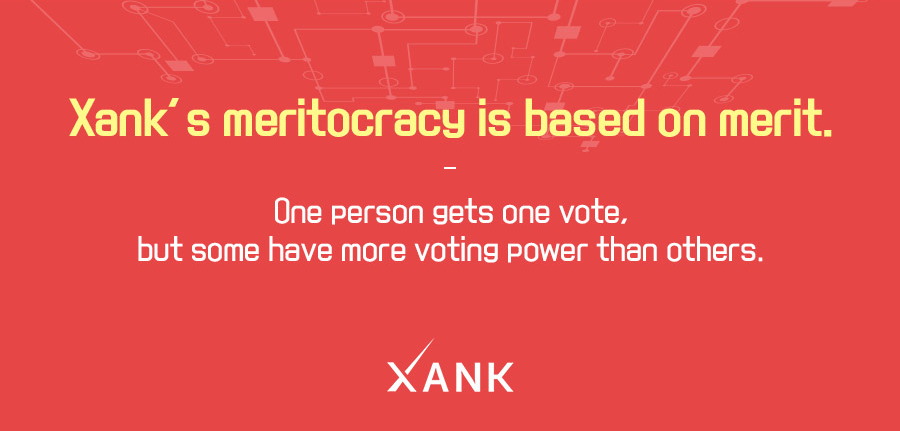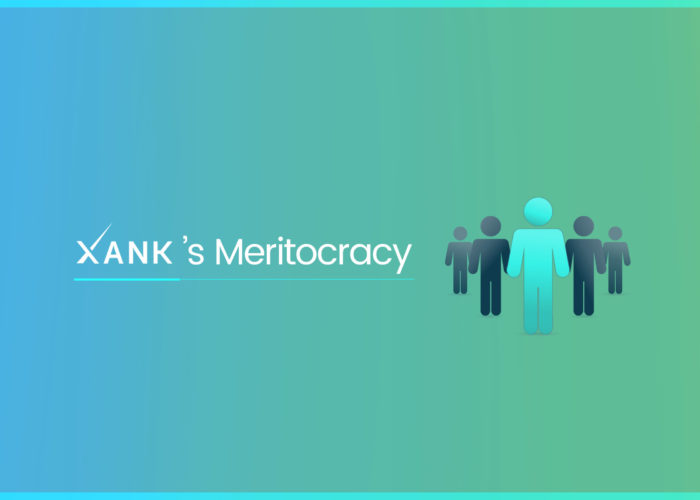G overnance models in cryptocurrencies have always been the subject of debate. Which model is immune to collusion and centralization? Which model prevents an individual or group from dominating the network? So far, we haven’t really seen a governance ecosystem that can confidently come forth and say, “I am the fairest of them all.”
Today, I want to talk about the Dash network and how Xank develops upon the Dash framework to adopt an idea meritocracy that is based on Xank’s one-of-a-kind reputation system for governance.
Let’s go over Dash’s governance model. Dash was the first ever cryptocurrency to introduce the concept of masternodes, with each masternode granted one vote in return for their commitment to the network. Here, we are introduced to a democratic system whereby each masternode has one vote to cast in the decision-making process. Much like the one person, one vote structure prevalent in the world’s democracies. This is great, but it comes with an unwelcomed consequence.
Anyone was and is able to purchase 1,000 Dash coins to become a masternode operator. Fair enough. However, there is no limit to the number of masternodes an individual can buy, which means in theory, someone can buy 51% of the masternodes and control the decision making process. Say hello to centralization.
Now, we know that there is no perfect cryptocurrency. Dash has done much for the cryptocurrency industry, and that is why Xank will be a fork of the Dash network. Although Xank will inherit many of the positive qualities of Dash, we do differ from Dash because we shift from a democratic governance model to a meritocratic one.
We explained earlier in this story that Xank establishes a masternode voting system much like the way Dash does. Also like Dash, anyone can buy as many masternodes as he wishes in the Xank network.
Here comes the difference.
Xank requires masternode operators to secure a Self Sovereign Identity if they desire to participate in voting. Establishing this identity means that a masternode holder has his identity verified by the network and has a seat at the Xank network’s governance table. He has the voting power of one identity, although an identity with excellent merit does have greater voting weight than his peers (see here).

Let’s take an example of how this works. We have Bob and Sally, and both people have identical backgrounds, histories, and merits. They have received the same Xank Reputation Index score, and both have secured Self Sovereign Identities on the Xank network. However, Bob has one masternode, while Sally chose to buy 100 masternodes. Does Sally have greater voting power for holding more masternodes than Bob? No. Both Bob and Sally have the exact same voting weight. Purchasing masternodes does not translate to more voting power in Xank.
If we imagine certain attack scenarios, we can see that Xank is designed to withstand attempts to take over the network. Let’s say that Sally is unhappy that Bob has the same voting power as her, and her anger leads her to plot a 51% takeover. If she wants to accomplish this task, she will have to own multiple masternodes that each have a unique Self Sovereign Identity and have their identities rated by other nodes within the rules of Xank’s reputation system. For her to succeed, she would have to somehow convince real, highly principled people with outstanding social and economic standing to follow along in her dirty scheme. She would have to mobilize a loyal following of identities that put their reputation at stake for a network takeover, and this simply is not achievable.
We believe this is what makes Xank special. We’ve redesigned the one masternode, one vote concept to a one identity, one vote structure while rewarding those with merit with more voting weight.
If you have any questions or comments about Xank’s masternodes, we’re happy to talk! Come chat with us on Telegram.



